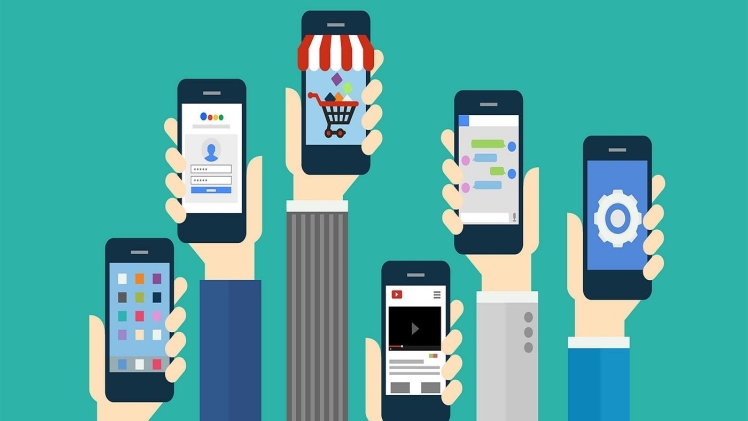Introduction:
In the fast-paced world of technology, mobile applications have become an integral part of our daily lives. With the advent of smartphones, these applications have evolved to cater to a wide range of needs, from communication and entertainment to productivity and education. This article explores the journey of mobile applications, their impact on society, and the future trends that shape this ever-growing landscape.
The Evolution of Mobile Applications:
The concept of mobile applications dates back to the early 2000s when the first smartphones emerged. These devices featured basic applications like calendars, calculators, and simple games. However, the real transformation began with the introduction of the App Store by Apple in 2008, creating a centralized marketplace for developers to showcase and distribute their applications.
Following Apple’s lead, other tech giants such as Google with the Android platform launched their app stores, further expanding the reach of mobile applications. This led to a surge in mobile app development, with developers creating innovative solutions for various purposes.
Mobile applications now cover a vast array of categories, ranging from social media, messaging, and gaming to health, finance, and education. The diversity of applications reflects the growing needs and interests of users worldwide.
Impact on Communication:
One of the most significant impacts of mobile applications is seen in the realm of communication. Social media platforms like Facebook, Instagram, and Twitter have revolutionized the way people connect, share information, and express themselves. The ease of access provided by mobile apps has made these platforms an integral part of daily life for millions.
Messaging applications such as WhatsApp, Telegram, and Signal have transformed the way people communicate globally. These apps offer instant messaging, voice calls, and video calls, breaking down barriers and connecting people across borders.
Entertainment on the Go:
Mobile gaming has experienced a paradigm shift, with smartphones becoming powerful gaming devices. Casual games like Angry Birds and Candy Crush Saga have become global phenomena, while complex, high-quality games such as PUBG Mobile and Fortnite offer console-like experiences on mobile devices.
The rise of streaming services like Netflix, Hulu, and Spotify has been facilitated by mobile applications. Users can now access a vast library of movies, TV shows, and music on the go, transforming the entertainment industry.
Boosting Productivity:
Mobile applications have also become essential tools for professionals and businesses. Productivity apps like Microsoft Office, Google Workspace, and project management tools enable users to work efficiently from anywhere. The integration of cloud services has further enhanced collaboration among team members.
E-Learning:
The education sector has witnessed a revolution with the advent of e-learning applications. Platforms like Khan Academy, Coursera, and Duolingo offer a wide range of courses, making education accessible to people around the world. Mobile apps provide a flexible and convenient way for users to enhance their skills and knowledge.
Impact on Health and Well-being:
The emphasis on health and fitness has led to the popularity of apps like Fitbit, MyFitnessPal, and Strava. These applications help users track their physical activity, monitor their diet, and achieve their fitness goals.
Mental Health Apps:
The awareness of mental health has prompted the development of apps like Headspace and Calm, providing guided meditation, stress relief, and sleep aids. These apps contribute to the well-being of users by promoting mindfulness and relaxation.
Challenges and Concerns:
The widespread use of mobile applications has raised concerns about user privacy and data security. Instances of data breaches and unauthorized access to personal information have highlighted the need for robust security measures and stricter regulations.
App Monetization:
While many apps are free to download, the monetization strategies employed by developers, such as in-app purchases and ads, have sparked debates about user experience and fairness. Striking a balance between profitability and user satisfaction remains a challenge for the app industry.
Augmented Reality (AR) and Virtual Reality (VR):
The integration of AR and VR technologies into mobile applications is poised to revolutionize user experiences. From gaming and education to retail and healthcare, AR and VR have the potential to create immersive and interactive environments.
Artificial Intelligence (AI) Integration:
AI-powered applications are becoming more prevalent, offering personalized recommendations, intelligent assistants, and predictive analytics. The use of AI enhances user engagement and streamlines processes in various industries.
5G Technology:
The rollout of 5G networks promises faster and more reliable connectivity, opening new possibilities for mobile applications. Enhanced download speeds and lower latency will facilitate the development of more sophisticated and data-intensive applications.
Conclusion:
The evolution of mobile applications has transformed the way we live, work, and communicate. From humble beginnings to a vast and diverse ecosystem, mobile apps continue to shape the digital landscape. As technology advances, the future holds exciting possibilities with augmented reality, artificial intelligence, and 5G technology. However, addressing challenges such as privacy concerns and monetization strategies will be crucial to sustaining a positive user experience. Mobile applications are not just tools; they are an integral part of the modern lifestyle, connecting people and providing solutions at the touch of a screen.





